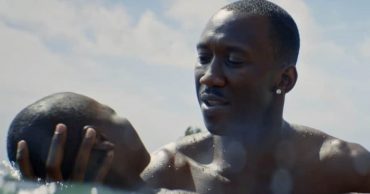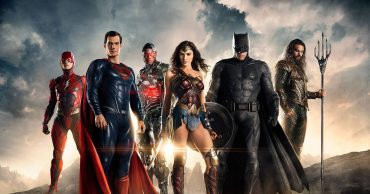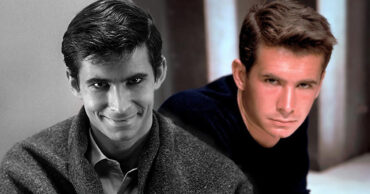Oscar-winner Al Pacino is one of the most decorated actors of all time. Loud, ferocious, and incredibly enigmatic, he has traversed a range of genres. Starring in some of the most iconic movies ever made, his name is fully cemented into the top tier.
In recent years, many of Al Pacino’s acting roles have faced scrutiny for not serving up what he is truly capable of. However, he has maintained relevancy and appeared in some acclaimed projects like The Irishman, Once Upon a Time in Hollywood, and the Prime Video series Hunters. Outside of his renditions in classic movies like Serpico, Heat, and The Godfather, lies a plethora of roles that have slipped under the radar. These 5 Al Pacino roles deserve way more credit than they have been given.
5. The Godfather Part III (1990)
The Godfather is widely considered to be one of the greatest movies ever made. Its follow up, The Godfather Part II, is often lauded as an even bigger cinematic achievement, a rare feat in Hollywood where sequels rarely hold up to their predecessors. However, when The Godfather Part III hit the silver screen in 1990, it was not met with the same praise as the previous entries.
Over time, moviegoers have come to appreciate the third entry. While it is arguably the weaker movie in the trilogy, Al Pacino’s performance elevates the picture. The film sees his character come full circle, sitting in the position his father was once in. As he desires to leave his life of crime behind him, he realizes it isn’t as simple as that, particularly with his hot-headed nephew Vincent (Andy Garcia) thriving to take the family to new heights. Pacino’s role in The Godfather Part III is extremely understated, lacking the ferocity seen in the other films. This in part could be the reason movie fanatics couldn’t quite resonate upon its initial release. However, if you observe the movie through a personal lens, Pacino perfectly embodies a man in somewhat of a mid-life crisis, ruminating over past mistakes and anxious to alter the course of his family’s future.
4. Cruising (1980)
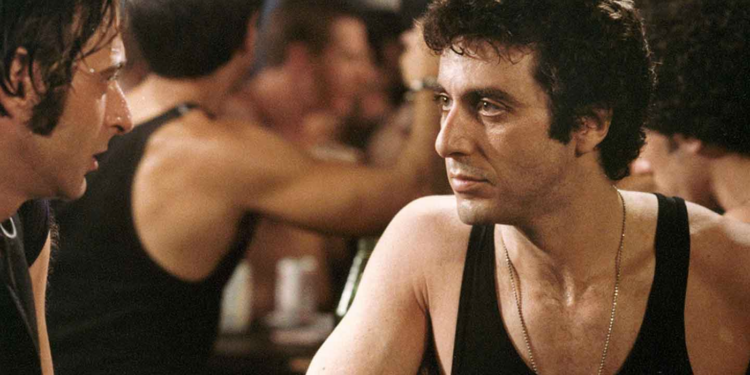
Al Pacino took on a daring and compelling role as Steve Burns in the overlooked 1980 movie Cruising. Burns is a young police investigator who goes undercover to look into a string of gruesome murders in New York’s colourful but often shady homosexual nightlife scene, with the NYPD believing they have a serial killer on their hands. Soon enough, the boundaries between his goal and his personal identity start to blur as he fully immerses himself in the Leather Bar subculture, examining themes of morality, sexuality, and societal norms.
Cruising went majorly unnoticed upon release, grossing only $19,798,718 against a budget of $11 million. It was also met with controversy and criticism that mirrored the intolerant attitudes of the day. However, in today’s more accepting society, Cruising would likely have a deeper impact with its important dialogues regarding the lives of LGBTQ+ people. Nonetheless, Al Pacino‘s fearless portrayal of a complex man showcases his remarkable range and dedication to his craft, earning Cruising a reconsideration as an important piece of cinema that deserves far more credit than it received in its time.
3. Sea of Love (1989)
Erotic thrillers started to boom in the late 80s into the early 90s with movies like Fatal Attraction, Basic Instinct, and Single White Female. Amidst this surge, 1989’s Sea of Love unjustly slipped by the wayside. Harold Becker‘s mystery-shrouded thriller focuses on Detective Frank Keller (Pacino), who is investigating a string of brutal murders, where the culprit finds their victims through the lonely hearts column in newspapers. When he falls in love with Helen (Ellen Barkin), his morality and commitment to his job is thrown into turmoil when she becomes the number one suspect. Sea of Love is another shining example of Al Pacino’s versatility and desire to constantly branch out. At the time, movies with such steamy content were shaky grounds for actors to walk upon. However, Pacino took the role in his stride and carried the movie away from a mere sexual romp to an intriguing crime mystery.
2. Chinese Coffee (2000)
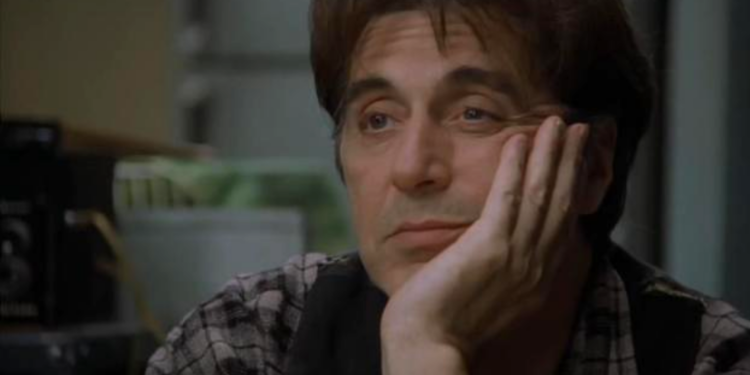
Chinese Coffee not only boasts one of Al Pacino’s finest ever performances, it is also the second movie he ever directed. As a deep character study, this 2000 released independent film focuses on Harry (Pacino) and Jake (Jerry Orbach), two struggling writers who spend a cathartic evening discussing and arguing about money, aesthetics, their friendship, and Harry’s new manuscript which he considers to be his magnum opus. This movie did not land with mainstream audiences due to its simple premise that feels more like a stage play. However, with the picture heavily honed in on dialogue, Pacino was really given the chance to flex every skill in his repository as his character shifts through feelings of despair, guilt, regret, and the quest for fulfilment in a highly competitive industry.
1. And Justice for All (1979)
Even though Al Pacino was nominated for an Academy Award for his depiction of the conflicted lawyer Arthur Kirkland in And Justice for All, Norman Jewison‘s picture hasn’t endured the same iconic legacy of his other works of the era, arguably outshine by two movies that were released either side of its cinematic landing – Scarface and Dog Day Afternoon. In this intense courtroom drama, Pacino embodies Kirkland as a passionate and principled attorney who slowly starts to question his calling as a defender. Grappling with the moral dilemmas of the justice system, he finds himself in a harrowing position when he is forced to defend a judge accused of a heinous crime, a man he slowly realizes may be utterly despicable and unworthy of defence. Despite being overlooked, And Justice for All is yet another multi-faceted performance from Al Pacino that showcases his ability to command the screen and invest audiences into any plight his character is thrust into.
Read Next: 19 Rare Photos of a Young Al Pacino You’ve Probably Never Seen
 Follow Us
Follow Us

